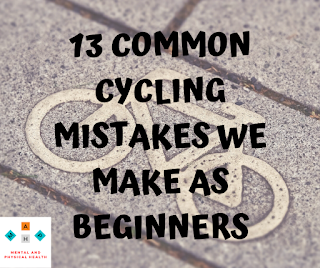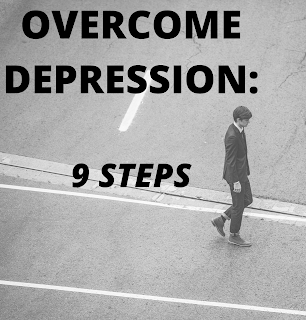11 EFFECTIVE TIPS TO GET BETTER SLEEP
11 EFFECTIVE TIPS TO GET BETTER SLEEP
Are you not getting enough sleep at night? Do you have problems falling asleep or staying asleep? We all have trouble sleeping from time to time, but when insomnia persists day after day, it can become a real problem. Beyond making us tired and moody, a lack of sleep can have serious effects on our health, increasing our propensity for obesity, heart disease, and type 2 diabetes. Unhealthy daytime habits and lifestyle choices can leave you tossing and turning at night and adversely affect your mood, brain and heart health, immune system, creativity, vitality, and weight. And stress can make the problem even worse.
Adults need 7-8 hours of sleep each night to stay in good mental and physical health, promote quality of life, and avoid an increased risk of injury. Healthy sleep habits can make a big difference in your quality of life.
Here are 11
effective tips to sleep better:
1. FOLLOW A SLEEP SCHEDULE
Go to sleep at the same time each night, and get up at the same time each morning, even on the weekends. Having a regular sleep schedule helps to ensure better quality and consistent sleep. Try to limit the difference in your sleep schedule on weeknights and weekends to no more than one hour. Being consistent reinforces your body's sleep-wake cycle.
Going to bed and waking up at the same time each day sets the body’s "internal clock" to expect sleep at a certain time night after night. Try to stick as closely as possible to your routine on weekends to avoid a Monday morning sleep hangover.
2.
AFTERNOON NAPS ???
Don't take naps after 3 p.m, and don't nap longer than 20 minutes. Many people make naps a regular part of their day. However, for those who find falling asleep or staying asleep through the night problematic, afternoon napping may be one of the culprits. This is because late-day naps decrease sleep drive. If you must nap, it’s better to keep it short and before 5 p.m.
If you get sleepy way before your bedtime, get off the couch and do something mildly stimulating, such as washing the dishes, calling a friend, or getting clothes ready for the next day. If you give in to the drowsiness, you may wake up later in the night and have trouble getting back to sleep.
If you work nights, however, you might need to nap late in the day before work to help make up your sleep debt.
3. MAKE A SLEEP ROUTINE
Follow a routine to help you relax before sleep (for example, reading or listening to music or Drink a glass of warm milk or Take a bath.). Turn off the TV and other screens at least an hour before bedtime. Rituals help signal the body and mind that it's coming to be time for sleep. Light reading before bed is a good way to prepare yourself for sleep. Check out these 15 best self help books worth reading.
Avoid stressful, stimulating activities—doing work, discussing emotional issues. Physically and psychologically stressful activities can cause the body to secrete the stress hormone cortisol, which is associated with increasing alertness. If you tend to take your problems to bed, try writing them down—and then putting them aside.
4. KEEP IT COMFY
Make your bedroom comfortable, dark, quiet, and not too warm or cold. A quiet, dark, and cool environment can help promote sound slumber. Exposure to light might make it more challenging to fall asleep. Avoid prolonged use of light-emitting screens just before bedtime. Consider using room-darkening shades, earplugs, a fan or other devices to create an environment that suits your needs.
Avoid watching late-night Television. TV isn't the only possible distraction in your bedroom. Ambience can affect your sleep quality too. Make sure your bedroom is as comfortable as possible.
To achieve such an environment, lower the volume of outside noise with earplugs or a "white noise" appliance. Use heavy curtains, blackout shades, or an eye mask to block light, a powerful cue that tells the brain that it's time to wake up. Keep the temperature comfortably cool—between 60 and 70°F—and the room well ventilated. And make sure your bedroom is equipped with a comfortable mattress and pillows.
5. DON’T LIE IN BED AWAKE.
Struggling to fall sleep just leads to frustration. If you can’t fall asleep after 20 minutes, do something calming until you feel sleepy, like reading or listening to soft music. Staring at a clock in your bedroom, either when you are trying to fall asleep or when you wake in the middle of the night, can actually increase stress, making it harder to fall asleep. Turn your clock’s face away from you.
For some people, using an electronic device such as a laptop can make it hard to fall asleep, because the particular type of light emanating from the screens of these devices is activating to the brain. If you have trouble sleeping, avoid electronics before bed or in the middle of the night.
6. EXERCISE
Get regular exercise, but not within 2-3 hours of bedtime. Going for a brisk daily walk won't just trim you down, it will also keep you up less often at night. Exercise boosts the effect of natural sleep hormones such as melatonin. A study in the journal Sleep found that postmenopausal women who exercised for about three-and-a-half hours a week had an easier time falling asleep than women who exercised less often. Just watch the timing of your workouts. Exercising too close to bedtime can be stimulating. A morning workout is ideal. Exposing yourself to bright daylight first thing in the morning will help the natural circadian rhythm. If you are thinking of starting cycling, you might want to look into some usual beginners' mistakes here.
Exercise can help you fall asleep faster and sleep more soundly—as long as it's done at the right time. Exercise stimulates the body to secrete the stress hormone cortisol, which helps activate the alerting mechanism in the brain. This is fine, unless you're trying to fall asleep. Try to finish exercising at least three hours before bed or work out earlier in the day.
7. LIGHT SNACK
Don't eat a heavy meal late in the evening. A light snack before bedtime is OK. Avoid eating a big meal within two to three hours of bedtime. If you're hungry right before bed, eat a small healthy snack (such as an apple with a slice of cheese or a few whole-wheat crackers) to satisfy you until breakfast. Drink enough fluid at night to keep from waking up thirsty—but not so much and so close to bedtime that you will be awakened by the need for a trip to the bathroom.
Cut back on sugary foods and refined carbs. Eating lots of sugar and refined carbs such as white bread, white rice, and pasta during the day can trigger wakefulness at night and pull you out of the deep, restorative stages of sleep.
8. AVOID ALCOHOL, CAFFEINE AND NICOTINE
Caffeinated products decrease a person’s quality of sleep. Stay away from caffeine and alcohol late in the day. If you do have a snack before bed, wine and chocolate shouldn't be part of it.
Chocolate contains caffeine, which is a stimulant. Surprisingly, alcohol has a similar effect. People think it makes them a little sleepy, but it's actually a stimulant and it disrupts sleep during the night. Also stay away from anything acidic (such as citrus fruits and juices) or spicy, which can give you heartburn.
Similarly, smoking is another stimulant that can disrupt your sleep, especially if you smoke close to bedtime. Avoid nicotine completely. Refrain from using tobacco products too close to bedtime.
9. RESERVE BED FOR SLEEP AND SEX
Don't use your bed as an office for answering phone calls and responding to emails. Reserve your bed for sleep and sex only. This means removing any work materials and avoiding the computer or television. Strengthening the mental association between bed and sleep by removing other activities can help you fall asleep faster.
Doing work on your laptop or watching TV in bed are bad bedroom habits. That’s because these type of activities cause our brains to form an association between our bed and actions other than sleeping – meaning your brain is then less primed for sleep and relaxation when your head hits the pillow. Using tablets, smartphones and other electronic devices before bed delays your body’s internal clock and suppresses the release of the sleep-reducing hormone melatonin.
10. DE-STRESS















Comments
Post a Comment